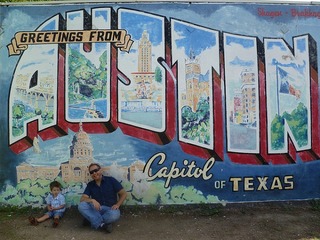DUOS expands AI capabilities to help seniors apply for assistance programs
It will complete and submit forms, and integrate with state benefit systems
Read more...
We you know, Americans love to shout, "we're number one" about a lot of things. If only that's all it took to actually be number one, we'd be fine.
The sad truth is, though, we are falling behind in a lot of ways, including education, health care and high speed Internet (which, now that I think about it, is probably affecting those other areas too). So, how bad is it? When it comes to our Internet speed, we rank eighth, behind countries like South Korea, Japan, the Czech Republic, Switzerland, Netherlands and Latvia.
It's a very big problem, and one that the U.S. government has pretty much abdicated all of its responsibility for. That has left it up to the private sector, and companies like Google, which has been trying to solve with Fiber, it high-speed Internet and television service, which has been around since 2011.
Sadly, the rollout has been slow, and only four cities in the entire country currently have it: Kansas City, Provo, Stanford and Austin, which is getting it this year. But here's some good news: Google announced on Wednesday that is it planning to bring the service to nine metro city areas, and 34 more cities in total.
Some of the cities that are included on the list of proposed sites are Atlanta, Charlotte, Nashville, Phoenix, Portland, Raleigh-Durham, San Antonio, Salt Lake City, and San Jose.
Google says that it chose these particular locations before they are being "led by people who have been working hard to bring faster Internet speeds and the latest technologies to their residents."
Portland and Nashville, for example, have made high-speed broadband a pillar of their economic development plans. And Julian Castro, the mayor of San Antonio, declared in June that every school should have access to gigabit speeds by 2020.
Unfortunately, not all of the 34 proposed sites will actually be getting the service, though. Factors such as topography, housing density and the condition of local infrastructure will all have to be factored in to see where it will be feasible.
Meanwhile, the cities are being asked to complete a checklist of items that will help them get ready for a project of this scale and speed, including maps of existing conduit, water, gas and electricity lines so that Google can plan where to place the cables.
"We aim to provide updates by the end of the year about which cities will be getting Google Fiber. Between now and then, we’ll work closely with each city’s leaders on a joint planning process that will not only map out a Google Fiber network in detail, but also assess what unique local challenges we might face," Google said.
"These are such big jobs that advance planning goes a long way toward helping us stick to schedules and minimize disruption for residents."
Google has not provided any timetable for this expansion.
(Image source: https://fiber.google.com)
It will complete and submit forms, and integrate with state benefit systems
Read more...The bill would require a report on how these industries use AI to valuate homes and underwrite loans
Read more...The artists wrote an open letter accusing OpenAI of misleading and using them
Read more...
